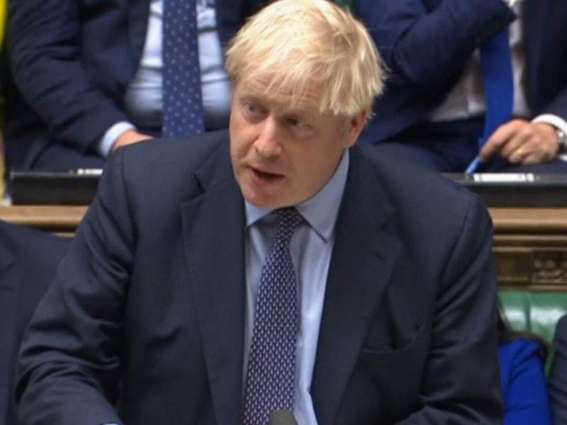The revolt vote by 19 Labour lawmakers in favor of Prime Minister Boris Johnson's Brexit deal indicates that so-called Remainers have not yet fully overtaken the party, with more politicians now attempting to ensure at least "some kind of Brexit" to respect the 2016 referendum results, University of London Professor Costas Lapavitsas, a former Greek lawmaker for the left-wing Syriza party, told Sputnik
LONDON (Pakistan Point News / Sputnik - 23rd October, 2019) The revolt vote by 19 Labour lawmakers in favor of Prime Minister Boris Johnson's Brexit deal indicates that so-called Remainers have not yet fully overtaken the party, with more politicians now attempting to ensure at least "some kind of Brexit" to respect the 2016 referendum results, University of London Professor Costas Lapavitsas, a former Greek lawmaker for the left-wing Syriza party, told Sputnik.On Tuesday, 19 Labour rebels defied the whip and helped the hard-worn Brexit deal to go through the second reading. The government, however, ultimately went on to lose the subsequent vote on its preferred timetable for amending and passing the bill into law, increasing the possibility of the United Kingdom failing to exit the European Union by October 31. European Council President Donald Tusk has already said that he will recommend that EU leaders give the country another Brexit extension.
"Generally speaking it [the Labour revolt] indicates that we are moving towards Brexit altogether. That's the first sign, a significant sign that some kind of Brexit will take place. Most of the Labour MPs who voted for that [bill] are from the more conservative side of the Labour party but also those more connected to traditional working class areas of Labour voters too. So this is significant," Lapavitsas said.
Yet the former lawmaker sounded a note of caution on the contents of Johnson's bill, claiming that it still provided ample room to effectively tie the UK to the legal apparatus of the EU, specifically the European Court of Justice.
"The binding part [of the bill], the Withdrawal Agreement, still leaves a considerable role for the European Court of Justice during the transitional period and after. In other words it doesn't detach Britain from the legal framework of the European Union for some time. That's not a good sign as far as I'm concerned," he argued.
Another matter of concern, according to Lapavitsas, is that any future free trade agreement negotiated by the Conservatives may spell trouble for workers' rights.
"The non-binding part, the political declaration, introduces a free trade agreement and that agreement is unlikely to be in the interest of working class people in this country as it's in a framework in which the European Court of Justice will have the final word, and it will be negotiated by a very conservative Tory government," he added.
All these factors indicate, the professor says, that the UK withdrawal would be only "a form of Brexit, but not a very decisive Brexit and not in the interests of working people."
After the parliament rejected Johnson's fast-track timetable to get the deal through, Downing Street said that it would call for a snap general election in case of the EU's lengthy extension. According to Lapavitsas, the snap vote could be a way out for the United Kingdom.
"An election is what Britain needs to unblock this preposterous situation where Parliament can effectively block the referendum and the will of the people. So the sooner the better," Lapavitsas said.
The professor, however, suggested that Johnson, despite his confidence, may be disappointed by the election outcome as his government "may be fought on social issues and the discontent across the country," not necessarily over Brexit. Labour, in turn, may face risks if they continue with their strictly pro-Remain course.
"The Labour party can shoot itself in both feet if it comes out clearly as the Remain party. If it does that it shuts all doors. It will lessen its chances dramatically, it must never do that," Lapavitsas warned.
Johnson is unable to simply trigger an election at his own whim, needing the consent of the two-thirds of lawmakers instead. A snap election has been earlier consistently ruled out by opposition parties. The Labour, specifically, wishes to see a no-deal Brexit removed from play before any consent to an electoral contest.
The Labour rebellion has, meanwhile, prompted further division within the party, with several dissidents having claimed to have received online abuse over their vote.




